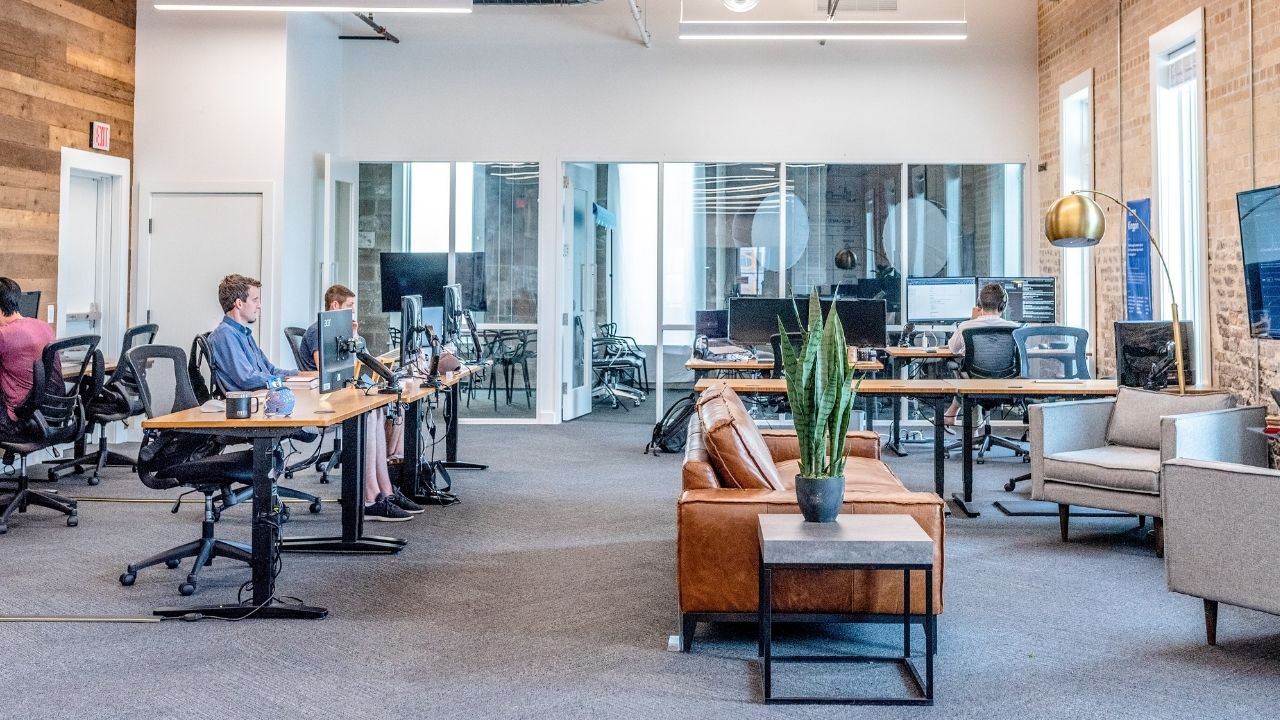- CP Group joins a growing list of landlords that are embracing flexible workspace by launching its own in-house brand.
- This comes as demand for flexible and short-term space increases as a result of the COVID-19 pandemic.
- CP Group is the latest to join the ranks of Tishman Speyer, Hongkong Land Holdings Ltd, British Land, and Dexus, among others.
Last week, property developer of office and mixed-use projects CP Group (formerly Crocker Partners), announced the official launch of “worCPlaces”, its flexible workspace brand.
CP Group joins a growing list of landlords that are embracing flexible workspace as demand for ready to use, flexible, and short-term space increases as a result of the COVID-19 pandemic.
“As companies continue to welcome workers back to the office, many are seeking not just a welcoming and supportive environment for their employees but also one that offers a high degree of flexibility to accommodate the shifting nature of the workplace,” said Chris Eachus, Partner at CP Group.
“The launch of these new spaces provides our tenants with the ability to adjust their office space along with their business, and ensure they remain in a position to grow and thrive in our buildings.”
worCPlaces offers three distinct service offerings:
- Spec Places: CP Group’s spin on traditional, move-in ready spec suites; designed for 3-25 employees. Additional amenities and furnishings available upon request.
- Shared Places: A combination of traditional spec suites paired with shared common area amenities such as conference rooms, reception area, copy room and server room; designed for 3-12 employees.
- Collab Places: worCPlaces answer to traditional coworking spaces; large, single/multi-desk offices with shared common area amenities such as conference rooms, reception area, copy room, and server room; designed for 1-20 employees.
worCPlaces was designed in partnership with global architecture firm Gensler. According to CP Group, “the program is aimed at helping companies drive productivity through a next-generation office environment which compliments the best-in-class amenities and quality service CP Group buildings offer.”
“The worCPlaces concept has today’s businesses in mind – with an emphasis on flexible term and space needs and the ability to offer modern day amenities and conveniences that helps companies attract and retain the best and brightest talent in the market,” said Angelo Bianco, Managing Partner at CP Group.
“We are excited to launch this initiative in many of our buildings across the Southeast and look forward to bringing in first-class tenants to occupy them in the months to come.”
CP Group has a portfolio that spans over 14 million square feet. worCPlaces are currently under construction at several of CP Group’s properties in South Florida and Atlanta.
Flexible Workspace Operators Face Growing Competition from Landlords
Industry experts have been predicting increased competition from landlords for a few years now.
“There will be a rise in landlord operators,” Elaine Rossall, Head of Office Research at Cushman & Wakefield, said during the annual eOffice Coworking Conference back in 2018.
Brad Krauskopf from Hub Australia echoed Rossall’s words last year during the virtual edition of GCUC APAC.
Suggested Reading:
- The “Sleeping Giant” of Flexible Workspace: Are Landlords a Threat or an Opportunity?
- Landlords to Become “Biggest Competitor” to Flexible Space Operators
Earlier this year, a report from Savills found that 75% of landlords expect tenants to ask for more flexible lease terms going forward. Cal Lee, global head of Workthere and joint head of Savills Flex, said that more and more asset managers will begin to build their own flexible workspace brands, “learning from their partnerships with the operators.”
Such is the case of Hines.
While the property company has partnered with Industrious over the past few years to bring coworking spaces to its buildings, during a recent podcast with Allwork.Space, Annie Rinker, Director of Workplace Services at Hines, said the company has started to see some shifts in how they approach flex space within their buildings, stating that “we [Hines] have shifted away from a partnership model and we are bringing operations in-house.”
Other property companies have opted to compete directly with flexible space operators from the get-go.
CP Group is the latest property owner to join the ranks of Tishman Speyer, Hongkong Land Holdings Ltd, British Land, Dexus, the GPT Group, WKO Inc., and Swire Properties; all of which have launched their own flexible workspace brands over the past few years.
In any case, the traditional leasing model is certainly losing its appeal for landlords as it involves a lot of risk, especially in bad times—like the one created by the coronavirus pandemic—as flexible workspace operators could easily walk away. This happened to a certain extent over the past 18+ months; WeWork, Knotel, and The Wing were sued by their landlords over unpaid rent.
By launching their own flexible workspace brands, landlords could see their margins improve significantly. Research from CBRE in 2019 found that 40% of buildings that include flexible workspace achieved values greater than the average for office buildings in their market.
While there is a strong business case for landlords to launch their own flexible workspace brand, experts have cautioned that it won’t be an easy path for many. Running a flexible workspace operation has more in common with running a hotel than it has with managing a building. Many property owners lack the hospitality expertise needed for a flexible workspace to thrive in today’s competitive market.



 Dr. Gleb Tsipursky – The Office Whisperer
Dr. Gleb Tsipursky – The Office Whisperer Nirit Cohen – WorkFutures
Nirit Cohen – WorkFutures Angela Howard – Culture Expert
Angela Howard – Culture Expert Drew Jones – Design & Innovation
Drew Jones – Design & Innovation Jonathan Price – CRE & Flex Expert
Jonathan Price – CRE & Flex Expert












